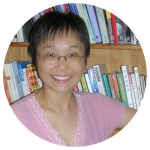Sean Pavone / Shutterstock

Wanning Sun, Deputy Director, UTS:ACRI; Professor of Media and Communication, Faculty of Arts and Social Sciences, UTS |
This article appeared in Pearls and Irritations on November 4 2023.
After a three-year delay due to Covid-19, a workshop organised by Sydney University’s China Studies Centre and hosted by the University of Sydney’s Centre in Suzhou was finally going ahead. Participants would spend the next three days discussing a dozen papers, all dedicated to the theme of ‘Gender, Intimacy and Class: The Individual and Social Change in China’. Workshop participants hailed from various disciplines – history, anthropology, political science, cultural studies, sociology, economics and geography – and were coming from the US, the UK, Australia and Hong Kong, as well as from China itself.
Despite the diverse disciplinary backgrounds and institutional positions, participants all shared a commitment to the importance of producing empirical data through fieldwork. I was among the fortunate attendees, and this would be my first trip to China since 2019. For most of us it was also the first time we’d met face to face with such a large group of researchers in more than three years.
While I was waiting to board the flight to Shanghai at Sydney Airport, a headline flashed across my mobile phone screen. It was a Guardian article titled, ‘Chinese academic raided by Australian police and offered $2,000 for information during trip’. My knee-jerk reaction was, ‘Oh God, will this lead to a tit-for-tat response from China? Am I likely to have any trouble going through customs and immigration when I land’? The second thought was a more philosophical one: ‘Is there much point in having a three-day workshop on individual and social change in China when academics can be suspected of being spies by both countries?’
When I arrived at my hotel in Suzhou and managed to get connected online, I saw an article by Jocelyn Chey. Planning on attending an Australian Studies conference in Beijing, Professor Chey was ‘nervous’ about her travel plans because of recent stories about the attitude of Australian spy agencies towards information exchanges with China. ‘Friends, if I fail to board the Qantas flight out of Hong Kong on 27th October, please alert Foreign Minister Penny Wong as soon as possible!’
Unnervingly, this reminded me that I had made a similar joke to my UTS colleagues before leaving for China, and I have to say that I was only half joking.
The Suzhou workshop was a success. An enormous amount of new empirical research findings were shared, and there were numerous extended and in-depth discussions – sometimes debates.
After a four-year absence, I got to hear about many new individual practices and social phenomena in China. For instance, I learned that Tibetan Buddhism has become a means of social support for some middle-class women who feel alienated from mainstream ‘feminine’ norms and harmed by gendered inequities. I also learned what motivated ‘Red Collectors’, those offspring of revolutionaries who now collect objects from the revolutionary and Mao eras in order to forge and sustain an intimate connection with their revolutionary forebears. I learned about how and why the Chinese party-state has propagated a particular trope of romance among college student couples with outstanding academic performance. I learned about how and why, despite widespread crackdowns on the MeToo Movement and Western-style feminism, the Chinese government has tolerated such movements among NGOs in China.
But learning did not happen just during the scheduled discussions. Many insights and much new knowledge and research experience were shared during tea breaks, meals, tours, and informal interactions outside the programmed time. These conversations tended to be more personal and candid, albeit somehow anecdotal.
I was concerned to hear about the progressive shrinking of intellectual space within which some China-based university academics have to conduct their teaching and research. I sensed that many appreciated being able to speak freely in the workshop. Similarly, China-based colleagues were surprised, even bemused, to hear about the increasing level of scrutiny of Australia-based researchers wishing to collaborate with colleagues in China. On both sides, there was a deeply felt appreciation of the importance of sustained and, if possible, face-to-face interaction between researchers in the two countries.
The Suzhou workshop convinced me that, in order to make sure our knowledge about China stays up to date, comprehensive, in-depth and complex, continuing to do fieldwork research is crucial. Equally importantly, our understanding of China must go beyond the realm of geopolitics and international relations.
Professor David Goodman, the Director of Sydney University’s China Studies Centre and progenitor of the Suzhou workshop, is a firm believer that what happens in China is important for Australia for economic, social and even political reasons. To Professor Goodman, it is important for Australia to understand that there are ordinary Chinese living everyday ordinary lives that are of significance to Australia in numerous ways.
The notion of China in the rest of the world’s popular imagination is dominated by current geo-politics and the role of the USA. Australia needs to understand what happens in the various localities of China and not just in Beijing or the interactions between Beijing and Washington. There is, though, another China of importance to Australia and indeed the rest of the world.
Like Professor Goodman, I think that continuing to talk with Chinese colleagues is crucial. This will help us to produce new scholarship about social change in China that goes beyond our daily diet of news headlines. It should also help us avoid making decisions about our relationship with China based on fossilised, simplistic and superficial knowledge or stereotypes. This is crucial precisely because of the current tensions in China-Australia relations.
Author
Professor Wanning Sun is Deputy Director at UTS:ACRI and a Professor of Media and Communication in the Faculty of Arts and Social Sciences at UTS.


